Pham Van Tam: Who is the former chairman of Asanzo who emerged from a cheap TV that has just been prosecuted?

3 | 0 Discuss | Share
Sharma - Winner, who won because he didn't give up.
Difficult first steps
Coming from a modest background, Sharma once told Firstpost that his family belongs to the "lower middle class", and that his father's teacher salary is the family's only source of income. When she was a teenager, Sharma began to dream of getting a job that paid 10,000 rupees a month (about 150 USD). Fortunately, Sharma was gifted with education from an early age, and by the age of 15 he was admitted to Delhi Technical University (DTU). Here, he began to meet his first big challenge in life, which was English: "I had to leave my hometown Aligarh to move alone to the megacity of Delhi. Before that, I only studied in English. Hindi. So when I came to Delhi, it was difficult for me to pursue my studies in Hindi." This was a shock for someone who was used to being at the top of the class like Sharma.
Since then, Sharma began to find ways to avoid sitting at the front of the class like in high school, and "hidden" to the bottom tables because he could not answer the teacher's questions in English. However, this caused Sharma to have another problem: his classmates began to bully him. Fortunately, Sharma's roommates protected him and helped him regain his confidence.
From there, Sharma began her journey of self-improvement. He taught himself English by reading newspapers and magazines every day. He also learned how to read two books at once: the original English book and the Hindi translation by his side. One day, Sharma read an article about Silicon Valley in America and became curious. From that day on, he began to spend a lot of time in the computer center in the school.
This is where Sharma started to change her dream: "I dreamed of becoming a new Sabeer Bhatia (the Indian businessman who founded Hotmail service). I realized that instead of working for people as hired laborers otherwise, it would be better to create something for Indians to use."
Studying Silicon Valley startup examples also made Sharma think: "Never mind going to school. I can build my own company with the help of the Internet." In his third year of college, Sharma and a friend founded a website called Indiasite.net. He said: "This is a site that provides a search engine and website directory. We received an initial investment of 20,000 rupees (more than 300 USD) from a venture fund in the US, Individual Angel Investor. . We continued to invite two more classmates to join. By 1998, I completed my bachelor's program."
"From February to May 1999, our turnover reached 500,000 rupees (about 7,700 USD). We sold the company back in 1999 to Living Media India (now India Today corporation) for half a million USD. and this money is divided between the 4 founders.
This first success made Sharma extremely happy, if you recall that his original dream was just to get a job that pays $150 a month. The first thing Sharma did after receiving the money from the sale of the company was to buy a color TV for her family. He surprised his mother by buying a sari for her, and paying off his sister's wedding debt.
For Indian businessman Vijay Shekhar Sharma - founder and CEO of One97 Communications (parent company of payment service Paytm) - the period 2016-2017 was a turning point in his career. The Indian government's withdrawal of a series of large denominations of cash has caused a spike in demand for Paytm, and now One97 is preparing to enter the e-commerce market, causing the company's valuation to continue to rise. toweringly high.
In March 2017, billionaire Anil Ambani's Reliance Capital fund sold a 1% stake in Paytm for 2.75 billion rupees ($42.4 million), a profit 27 times higher than when Reliance invested. Paytm in 2010. According to media reports, the deal valued Paytm at $4.8 billion.
On May 19, 2017, SoftBank (Japan) poured $1.4 billion into Paytm, pushing its valuation to a record $8 billion. This figure makes Paytm India's second-most valuable startup, after e-commerce firm Flipkart ($11.6 billion valuation).
According to Forbes estimates, Sharma's current net worth is $1.36 billion. Day by day, the 38-year-old businessman is witnessing his dream come true: "Create a company and a product that is useful to everyone and has its own place in the market".
Rise from the ashes
When the terrorist attacks of September 11, 2001 and the collapse of the dotcom bubble in the US turned the economic situation in the US and India, Sharma was in new trouble. At that time, Sharma founded a new company called One97 Communications, specializing in value-added services for mobile phones. He poured his savings here, only to lose most of it when the economic situation changed, and the co-founder withdrew from the company. Sharma again started using public transport to get around and live by drinking 2 cups of milk tea.
To keep One97 alive, Sharma tried everything. For 2 consecutive years, he lived on a salary of 100 USD/month (after paying all the office rent and salary for 25 employees) and had to do many outside jobs to earn extra money, such as teaching information classes. study for 15 USD/day. At the same time, One97 had to borrow a lot of money to maintain operations, and sometimes the interest rate was up to 24%. There were days when Sharma had only 15 rupees in his pocket (equivalent to 5,000 Vietnamese dong), and he had to climb the wall into the house he rented to avoid meeting the landlord.
In 2005, Sharma received an investment offer of 800,000 rupees ($12,300) along with a new office from businessman Piyush Aggarwal, but in exchange he had to sell 40% of the company's shares. Sharma didn't have much choice: his family wanted his son to get married, but the bride's side didn't like a groom without a steady income. Sharma's father repeatedly urged his son to close the company and find a job with a monthly salary of at least $500.
So Sharma accepted Aggarwal's offer. Six years later, Aggarwal sold these shares for 860 million rupees, earning a profit of nearly 1,100 times.
Receiving a lifebuoy, One97 began to thrive. In the period 2007-2008, at one point the company sold up to 100 million phone ringtones within a month, and the revenue reached 110 million rupees. In 2007, Sharma found the first investment fund that accepted to pour capital into her company. At that time, SAIF Partners had poured $ 2 million into One97, and its director Ravi Adusumalli said: "Sharma is probably one of the most passionate startup entrepreneurs I have ever met. The first investment. in One97 was quite small, but it later became our largest investment in the whole of India."
By 2010, One97's revenue increased 20 times after 4 years, reaching 2.2 billion rupees. This is when Sharma sees smartphones becoming more and more popular in India, and he wants to create a new value-added service that combines the advantages of mobile phones and the Internet. From there, Sharma thought about creating a mobile payment service.
An empire is born
However, convincing One97 shareholders is not easy. Sharma asked them to give him 1 million USD to develop this payment service, but only received 770,000 USD, with a term of 6 months. He also contributed 2 million USD of his own to this project. During that period, every day Sharma got up at 6am and worked until night. By December 2010, Paytm online payment service was officially launched.
In order for Paytm to grow, Sharma must think of a way to solve the biggest problem that any company involved in e-commerce faces: how to not lose money in the bottomless black hole called a bottomless black hole. "marketing"? So he decided that, instead of spending money on expensive advertising campaigns, implement a radical discount strategy. With Paytm discount codes, those who pay their utility and phone bills through its service can save almost 50% in the form of bonuses: If paying 1000 rupees via Paytm, customers can get 500 rupees back to my Paytm account to use for other expenses.
2013, Paytm reached the milestone of 3 million users. Sharma is also investing heavily in customer service and improving technology, while seeking new capital flows. In 2015, One97 received a total of $880 million from Chinese giant Alibaba and its subsidiary Ant Financial. By then, Paytm had more than 100 million users.
By 2016, Indian Prime Minister Narendra Modi signed a decree that caused 86% of the country's cash to be withdrawn from circulation overnight, making Paytm grow rapidly. By January 2017, Sharma said Paytm had processed 200 million transactions worth 50 billion rupees ($771 million) in the month, up 11% from December 2016.
By May 2017, the number of Paytm users had surpassed 220 million. Paytm is also among 11 companies that have obtained a license from the Central Bank of India (RBI) to be able to set up a payments bank. On May 23, Paytm Payment Bank was born, with a commitment of 4% interest rate and the goal of having half a billion customers by 2020.
Earlier this year, Paytm's story became a case study at Harvard Business School. In addition, Sharma has just been selected by Time magazine as one of the 100 most influential people in the world, alongside Prime Minister Modi.
One of the most memorable moments with Sharma was in August 2016, when he and his wife went shopping at a second-hand market in New Delhi, and decided to buy an item they liked, but didn't have enough money. inside the bag. The seller is determined not to accept payment by card, but wants to receive cash. After a while of exchange, this person proposed another solution: receive payment using Paytm e-wallet.
And so Sharma received a quick lesson from the salesman about using the product he created himself. Sharma said: "My wife smiled and looked at me with a look that said 'You must be feeling extremely happy'." That day, Sharma didn't reveal to the salesman who he was because he thought "it's not that important," because the only thing he could think of right now was "create the first $100 billion company." of India".
To other entrepreneurs, Sharma once said: "Congratulations to the winners who won because they didn't give up".

3 | 0 Discuss | Share
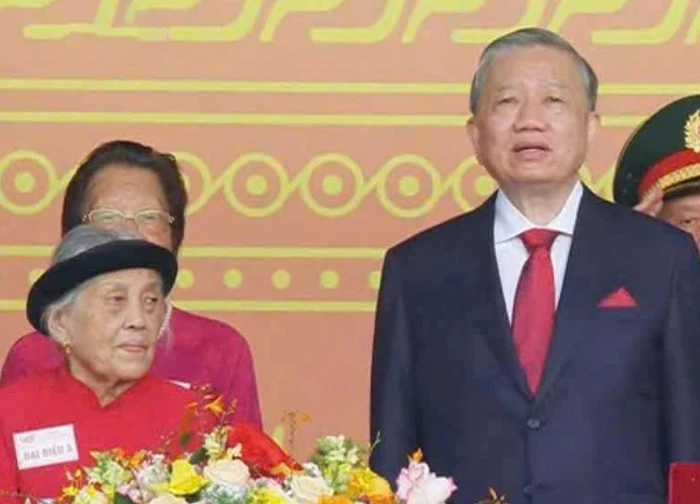
5 | 0 Discuss | Share

1 | 0 Discuss | Share
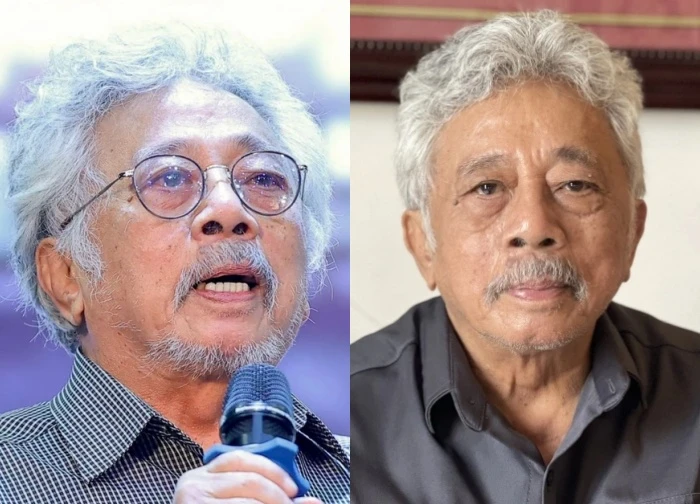
7 | 0 Discuss | Share

1 | 0 Discuss | Share

4 | 0 Discuss | Share
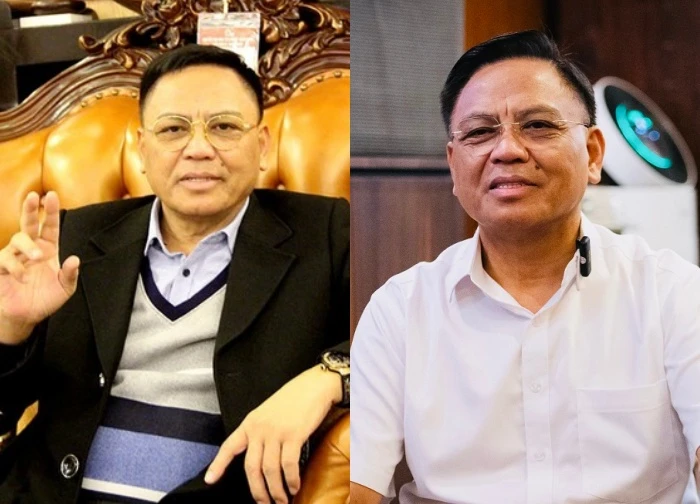
1 | 0 Discuss | Share

2 | 0 Discuss | Share

4 | 0 Discuss | Share

1 | 0 Discuss | Share

2 | 0 Discuss | Share

3 | 0 Discuss | Share

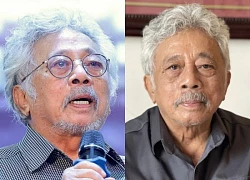

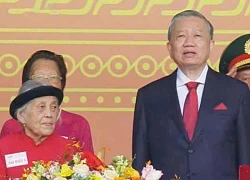


2 | 0 Discuss | Report